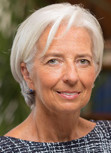
IMF Seminars and Conferences -- Islamic Finance: Meeting Global Aspirations, November 11, 2015
| Wednesday, November 11, 2015 | |
|---|---|
| 9:30 - 10:30 am |
Plenary Session
|
| 10:45 am - 12:00 pm |
Session I: Increasing Financial Inclusion and Growth through Access to FinanceIslamic finance institutions provide a good platform for increasing financial inclusion of underserved population and access to finance for SMEs, thereby supporting growth and economic development. According to a study conducted by the International Finance Corporation, based on nine countries (Egypt, Iraq, Jordan, Kingdom of Saudi Arabia, Lebanon, Morocco, Pakistan, Tunisia, and Yemen) in the Middle East and North Africa and Pakistan, there is a potential gap of US$8.6 billion to US$13.2 billion for Islamic SME financing, with a corresponding deposit potential of US$9.7 billion to US$15.0 billion across these countries. There is, therefore, a large untapped potential for Islamic financing in this area. Removing regulatory and tax impediments to equity-like financing, and strengthening financial infrastructure would help penetration in this segment. Moderator:
|
| 12:15 - 1:30 pm |
Session II: Strengthening Regulation and Supervision to Foster StabilityThere is a need to tailor regulations to the specifics of Islamic banks and for greater consistency of regulation and supervision. Islamic standard setters, including the Islamic Financial Services Board, have done an impressive job in establishing "rules of the road." However, existing evidence appears to suggest that these standards are not being applied consistently, which could stifle the development of Islamic finance or encourage its growth in a manner that creates systemic vulnerabilities. Therefore, continuous efforts will be needed to improve the extent to which existing standards for Islamic finance are applied, both nationally and internationally. This session will also cover issues related to the challenges with the implementation of the capital and liquidity standards of Basel 3 and macroprudential policies. Moderator:
|
| 2:45 - 4:00 pm |
Session III: Developing Sukuk and Other Long-Term Islamic Financing for Sustainable DevelopmentGlobal issuance of Sukuk has grown significantly since 2006, reflecting increasing interest from sovereigns, multilateral institutions, multinational and national corporations from developed and emerging economies, in financing investments in a wide range of economic activities and development projects. The experience thus far shows the potential for Sukuk to help close countries’ infrastructure gaps. Key imperatives to deepen this market are: the development of the legal and regulatory framework, strengthening infrastructure, stepping up sovereign issuance with diversified maturities as part of public debt management plans underpinned by a strong public financial management framework, and developing the secondary market. International standards for accounting and statistical treatment of Sukuk need to be developed as well. Further, it is important to explore the role Islamic finance can play in promoting sustainable development. Moderator:
|
EIN Presswire does not exercise editorial control over third-party content provided, uploaded, published, or distributed by users of EIN Presswire. We are a distributor, not a publisher, of 3rd party content. Such content may contain the views, opinions, statements, offers, and other material of the respective users, suppliers, participants, or authors.






